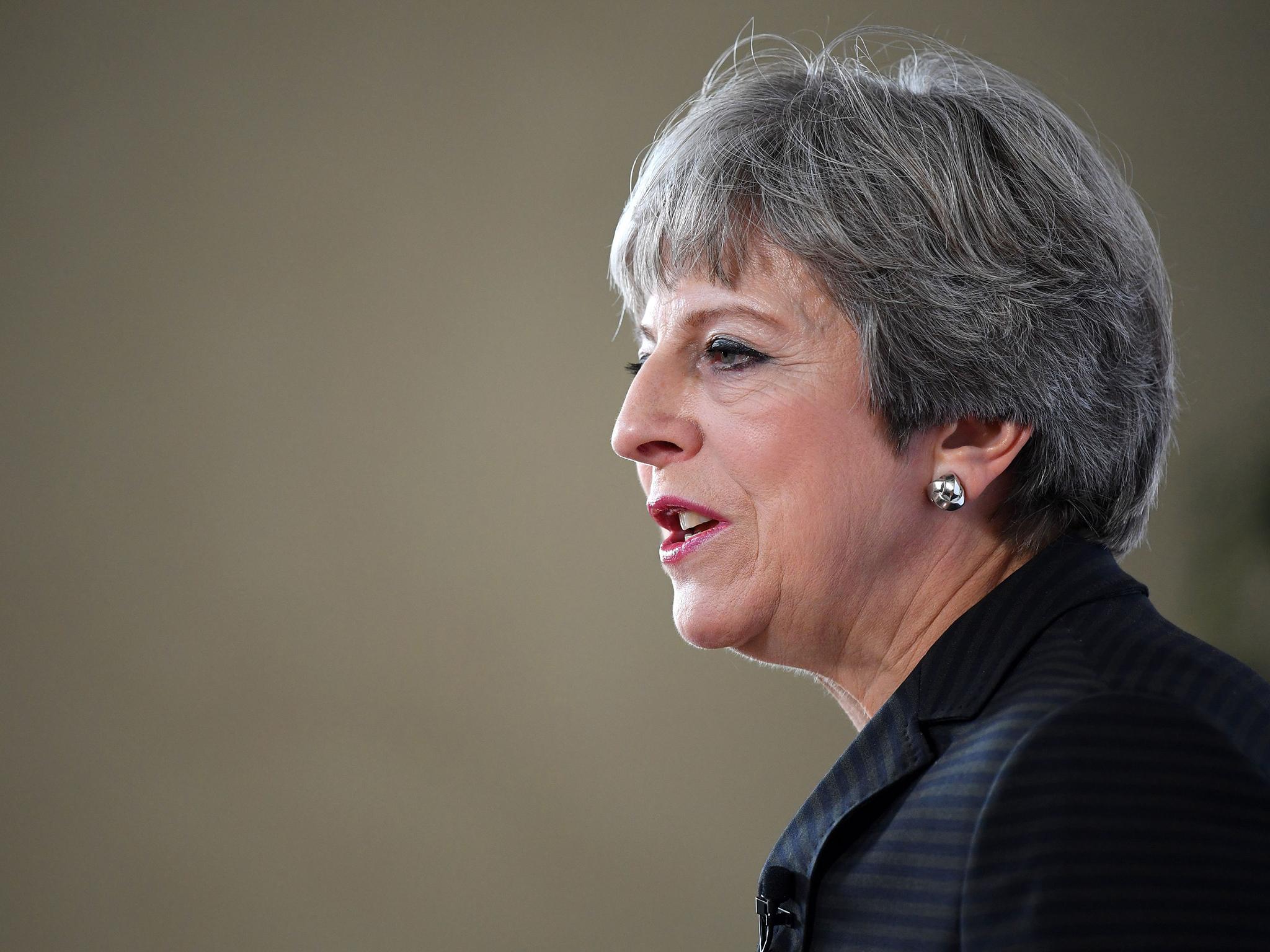Thanks to Boris Johnson, Theresa May's Florence speech highlighted all of her weaknesses instead of her strengths
May is paying the price for not preparing the ground on the divorce payment and the inevitable messy compromises that lie ahead. Her speech was a missed opportunity to do that


“This is a battle between time and money,” was how one cabinet minister described the Brexit negotiations this week. To prevent time running out on exit negotiations that are going nowhere – and Britain leaving the European Union without a deal – Theresa May has finally put some money on the table.
Although she did not include a figure in her speech in Florence this afternoon, her promise to honour the UK’s budget commitments to the EU should head off the real possibility of the talks breaking down. While she used only one coded sentence in order to soften the impact on the domestic front, it was the language the EU wanted to hear.
It should be worth more than the reported €20bn (£18bn), which is only an opening offer. The UK will probably have to stump up at least twice as much to secure a deal. Ministers want to keep some money up their sleeves for when the negotiations reach a climax in a year’s time. Money is their strongest card, while (the lack of) time is on the EU’s side.
Apart from the divorce payment, May’s conciliatory tone towards the EU was not matched by much substance. She moved a little on the rights of EU citizens in the UK and dropped her previous threat to play the security card by ending cooperation with our neighbours.
Florence also marked a welcome retreat from May’s previous “no deal is better than a bad deal” mantra, as she acknowledged that the UK needs a two-year transitional agreement. This is a setback for hardline Brexiteers, who had urged May to repeat the threat to walk away without agreement in her speech.

Although she paid lip service to it when taking questions from journalists, May knows the threat is an empty one. Parliament would probably send her back to the negotiating table. It is increasingly clear the UK has not made enough preparations on issues such as customs, borders and immigration to fully leave in March 2019, and urgently needs to provide certainty and stability for business.
But May also showed her stubborn streak by making five references to her Lancaster House speech in January. This Prime Minister does not do U-turns. Her political epitaph will be “nothing has changed”; she’ll be saying it even on the day after she leaves Downing Street.
The speech highlighted May’s weakness, not her strength – thanks to Boris Johnson. He has garnered more headlines than her this week, which, despite his protestations, is precisely what he craved. His allies talked up the idea that he could resign, which he then blamed on an overexcited media. The Foreign Secretary was playing a cynical game. His supporters will claim his intervention stopped the Prime Minister endorsing the Chancellor Philip Hammond’s vision of a UK remaining close to the EU single market after the transition – which May’s allies insist she was never going to do anyway.
By reviving his bogus claim that Brexit could eventually bring a £350m-a-week bonus for the NHS, to try to protect his own reputation, Johnson made May’s nightmarish task of appealing to both an EU and domestic audience even harder.
“Some people are still fighting the referendum campaign; they need to move on,” snarled one May ally. It is true that some Leave voters will not understand why we are not leaving immediately and are paying more money in when Boris and co promised we would get our money back. In fact, as Hammond argues, there are good reasons to pay up, to prevent an act of economic self-harm that would most hurt those on low incomes.
May is paying the price for not preparing the ground on the divorce payment and the inevitable messy compromises that lie ahead. Her speech was a missed opportunity to do that.

The Cabinet may have signed up to a transitional deal but its public display of unity is fake. There are still two competing visions for the UK after 2021: Hammond’s one for close links with our biggest market, and the Brexiteers’ one, which wants to break free from EU regulations and not pay for single market access – the Cabinet’s new faultline. Stand by for more headlines about Johnson threatening to resign over “cash for access” – even though we should now take them with a bucket of salt.
May’s desire for a “bespoke” arrangement – not the Swiss-style arrangement favoured by Hammond or the Canada-EU trade deal route backed by Johnson – was deliberately opaque. Fifteen months after the referendum, she has not made her mind up on precisely what she wants and there was no sign of consensus during the Cabinet’s long overdue two-hour debate on Thursday. The real battle was merely postponed.
While the Florence speech buys May some time, she cannot afford to waste any more. The Prime Minister must decide her favoured final destination, and try to bridge the divide between the Chancellor and Foreign Secretary. Not least because the EU needs to know, if progress is to be made on a deal before time really does run out.
Join our commenting forum
Join thought-provoking conversations, follow other Independent readers and see their replies
Comments
Bookmark popover
Removed from bookmarks